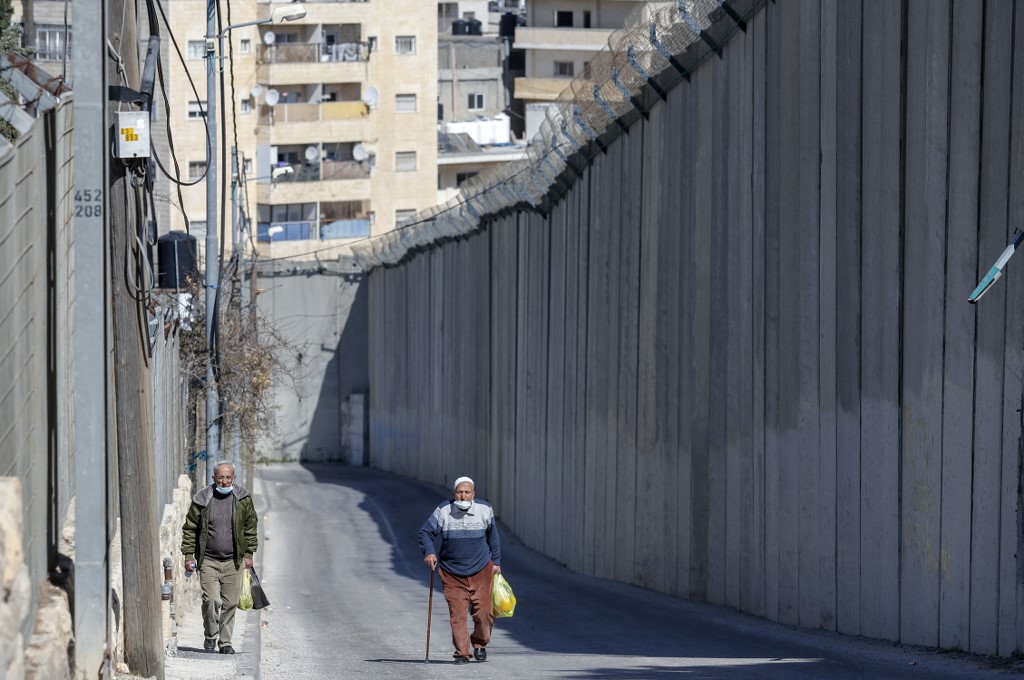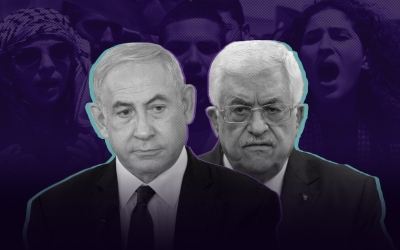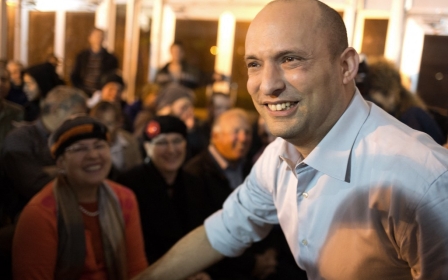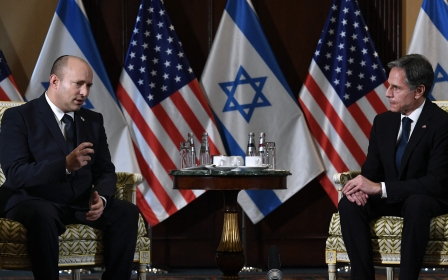Israel-Palestine: Normalising apartheid under the guise of 'shrinking the conflict'
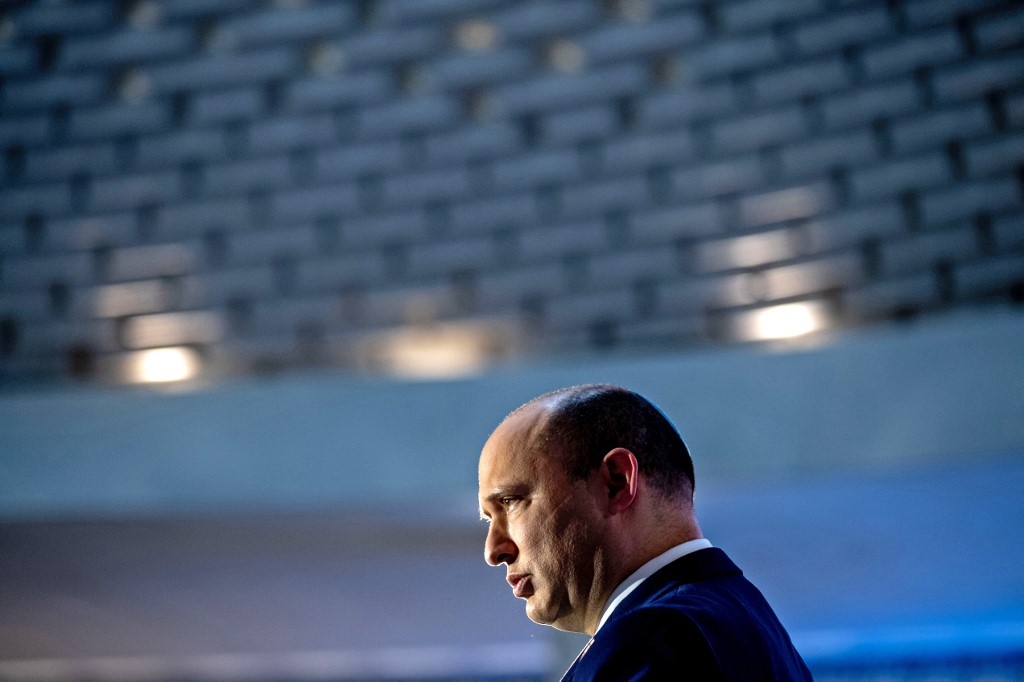
Kfar Adumim is, in many ways, an archetypal Israeli settlement. Established in 1979, it is, like all Israeli settlements in the occupied West Bank, a violation of international law. Located near Jerusalem, it is part of a cluster of colonies designed to fragment Palestinian territory.
Built at the expense of Palestinians, its residents - who, like the historic settler enterprise writ large, are a secular-religious mix - continue to play a role in efforts to dispossess Palestinians.
There is no concept of Palestinian rights, identity or history; they are simply an annoyance and a complication
Kfar Adumim is a part of an inherently discriminatory regime; a war crime. At the same time, the settlement is very much part of the so-called “consensus” among Israeli political parties. As a Meretz candidate put it in 2019: “There is no danger [of a future evacuation] for Kfar Adumim.”
It thus makes perfect sense that Kfar Adumim is where Israeli settler-philosopher Micah Goodman calls home. Goodman, author of a number of religious and political books, has been making headlines of late because of his reported influence on leading Israeli politicians.
This summer, Prime Minister Naftali Bennett reportedly spoke with Goodman about how his coalition government should approach the Palestinian issue. In particular, Bennett is seemingly enamoured with Goodman’s proposal for “shrinking the Israeli-Palestinian conflict”, which the author laid out in his book Catch-67 and in a 2019 piece in The Atlantic.
New MEE newsletter: Jerusalem Dispatch
Sign up to get the latest insights and analysis on Israel-Palestine, alongside Turkey Unpacked and other MEE newsletters
Recipe for apartheid
Goodman’s position is easy enough to summarise - at least on his own terms. “Most Israelis feel that if we stay in the West Bank, we have no future, and if we leave the West Bank, we have no future,” he told NPR. “Most Israelis are trapped in this catch.”
Since the “conflict” cannot be solved any time soon, Goodman says, “what Israel can do is start shrinking it in steps that shrink occupation without shrinking security, which means shrink the amount that Israel controls Palestinians without increasing the amount the Palestinians could threaten Israelis”.
The most straightforward and obvious critique of this notion is that “shrinking the conflict” is nothing new at all; it is simply the latest iteration of the peace process industry’s beloved paradigm of “confidence-building measures”, a repackaged form of “economic peace”.
A deeper critique, however, is that what Goodman presents as a synthesis of two extremes is actually what Israel has chosen since 1967: to neither formally annex nor withdraw from the occupied West Bank, and to exploit this “legal indeterminacy” for its strategic advantage.
“This government will neither annex nor form a Palestinian state,” Bennett told The New York Times in August. Indeed - and this is, in fact, a pithy summary of 54 years of Israeli policy under multiple, and diversely constituted, coalition governments, from Likud to Labor.
These two elements - economic peace and eternal de facto annexation - are a recipe for apartheid. “Shrinking the conflict” is nothing new; it is familiar Israeli rejectionism of Palestinian self-determination and international norms. There is no concept of Palestinian rights, identity or history; they are simply an annoyance and a complication. Indeed, Goodman has compared the Palestinian “conflict” to a “chronic disease” that will “always be a part of your life”.
Flawed 'peace process' framework
In a recent interview with Haaretz, Goodman noted: “I’ve been working for years on the hidden Israeli consensus, which hadn’t been articulated. I’ve been trying to conceptualize that consensus. And then along comes this government that I was preparing for.”
Yet, the “consensus”when it comes to Palestinians has not been at all “hidden” over the decades. It has been articulated in every dunam of confiscated land, and every brick in every settlement. Goodman’s approach thus both expresses, and is a product of, key elements of longstanding Israeli consensus with respect to the denial of Palestinian rights.
The reason why Goodman is today being hailed as “arguably Israel’s most influential public intellectual” is simple: he tells people what they want to hear - an intellectualised and comforting rationalisation of apartheid past, present and for ever. He is thus an ideal “court philosopher” for the Bennett-Lapid government, which has and will continue to deepen the apartheid regime between the River and the Sea.
But it is not just the Israeli government and politicians who are latching on to “shrinking the conflict”. Many will also see in its ambiguity and explicit disavowal of a clear political horizon (let alone accountability for Israel) an opportunity to resuscitate the “peace process” framework - especially in the context of a Biden administration in the US.
Addressing the Senate on Wednesday, Thomas Nides, the nominee to be ambassador to Israel, declared that the US would focus on making “tangible improvements” for Palestinians, with the aspiration of merely “preserving the vision of a negotiated two-state solution”.
In parallel is a fresh push to direct western governments’ and donors’ energies into “people-to-people” initiatives, with the US government set to pour millions into a new bonanza of grants. Cheerleaders for such an approach - rooted in “both sides” discourse and backed by the majority of pro-Israel advocacy organisations - have cited “clear opportunities to shrink the occupation and the conflict”, explicitly echoing Bennett and Goodman.
Goodman’s advocacy comes at the perfect time for Israel’s government, the Biden administration and the “peace process” diehards. If the Netanyahu-Trump era was about normalising Israel’s relations with the wider region (or parts of it), the Biden-Bennett years seem set to pick up where they left off, normalising apartheid under the guise of “shrinking the conflict”.
The views expressed in this article belong to the author and do not necessarily reflect the editorial policy of Middle East Eye.
Middle East Eye delivers independent and unrivalled coverage and analysis of the Middle East, North Africa and beyond. To learn more about republishing this content and the associated fees, please fill out this form. More about MEE can be found here.



